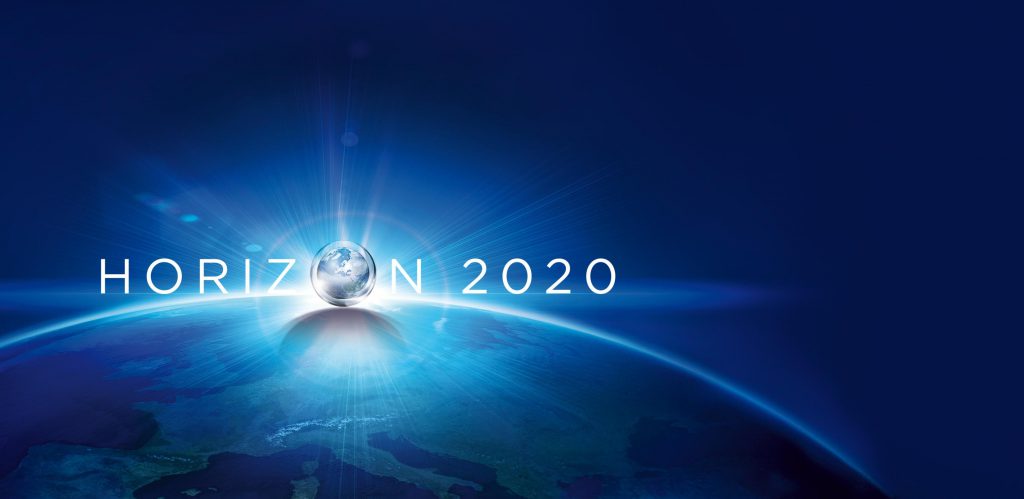
August 29, 2018, by Rob Ounsworth
Brexit: availability of EU funding to UK institutions for research
December 2018 update
Brexit remains unclear but the message to our researchers below on funding is unchanged: European funding remains a viable option, and we should be alert to these opportunities.
Any funding secured through the EU before the end of 2020, including Horizon 2020 money “will be guaranteed by the UK government even in a no-deal scenario”.
Please contact Matt Rackley in the Research and Innovation team for more on funding calls and support.
Information for staff on Brexit
Guest blog from Professor Dame Jessica Corner, Pro-Vice-Chancellor for Research and Knowledge Exchange.
As stories around Brexit dominate the news and suggest increasing uncertainty, it is timely to elucidate what we know about availability of EU funding for research to UK institutions now and in the future – including news from a statement released by the UK Treasury.
European funding under Horizon 2020 remains a viable option across all strands. While the UK is still a member of the European Union, UK institutions have all the rights associated with that status including the right to apply for and win Horizon 2020 funding. With respect to the time after Brexit, anticipated to take place at end of March 2019, a joint report from the UK Government and the negotiators of the European Union was published on 8 December 2017 outlining the agreement in principle made between the EU and the UK. It states that:
“Following withdrawal from the Union, the UK will continue to participate in the Union programmes financed by the MFF [Multiannual Financial Framework] 2014-2020 until their closure. Entities located in the UK will be entitled to participate in such programmes. Participation in Union programmes will require the UK and UK beneficiaries to respect all relevant Union legal provisions including co-financing.
“Accordingly, the eligibility to apply to participate in Union programmes and Union funding for UK participants and projects will be unaffected by the UK’s withdrawal from the Union for the entire lifetime of such projects.”
While ‘nothing is agreed until everything is agreed’, it is worth pointing out that this text on the UK’s continued access to Horizon 2020 until the end of 2020 is one of the sections flagged as ‘agreed by both sides’. It seems both the UK and European governments recognise the value of international collaboration in research.
Our commitment to international research partnerships
It is also worth restating that the University remains fully committed to proactively strengthening our relationships with current and prospective partners in Europe and across the world, and so enhancing our international reputation for delivering exceptional research.
And I fully endorse a recent statement by Sam Gyimah, Minister for Business, Universities and Skills:
“I want scientists and researchers across the UK to keep on pursuing projects and collaborations that Horizon 2020 can support. The opportunities are huge”.
There has of course been growing speculation about the possibility of a ‘no deal’ scenario, which could mean that the above agreement does not become effective. Chancellor of the Exchequer Philip Hammond’s announcement on 24 July 2018 was therefore very welcome. The Treasury statement gives reassurance that any funding secured through the EU by businesses, universities and local organisations before the end of 2020, including Horizon 2020 money,
“will be guaranteed by the UK government even in a no-deal scenario”.
The full statement is available here.
More detail is available on this in the 16-page UK Government document: UK participation in Horizon 2020: UK government overview.
Nottingham continues to work with the Russell Group, Universities UK and UKRO (the UK Research Office in Brussels), all of whom work closely with the UK Government’s Department for Business, Energy and Industrial Strategy (BEIS), the Treasury, and with European stakeholders to ensure that its interests are protected in ongoing negotiations. We are also engaged with pan-European university groups who are seeking – through dialogue with both the UK and European governments (of the European Union and its member states) – to promote an outcome that supports and encourages continued collaboration in research and innovation, not just for Horizon 2020 but beyond this, with the goal being an arrangement that allows funding from Horizon Europe, the €100 billion successor programme to Horizon 2020, to run until 2027.
It is also worth noting that the European Commission’s head of research Carlos Moedas has specifically directed evaluators not to discriminate against UK applicants and has stated: “Horizon 2020 projects will continue to be evaluated based on merit and not on nationality. So I urge the European scientific community to continue to choose their project partners on the basis of excellence.”
What you need to know
There is a raft of upcoming Horizon 2020 calls on a known schedule through to the end of 2020 that can be targeted by Nottingham academics, including those under the European Research Council and Marie Sklodowska-Curie Programmes, and collaborative programmes such as Societal Challenges.
It is extremely important – both from a funding point of view and from a research excellence perspective – that dialogue with European partners remains open despite Brexit, and exploration of new research-driven links with European partners should remain a priority. Such links may be supported via the International Research Collaboration Fund in the usual way.
The University provides support for applicants to these European calls. Matt Rackley in the Research and Innovation team can provide detail of what funding calls are forthcoming and the support that is available, or answer questions on the International Research Collaboration Fund, or on Brexit.
This support underlines our commitment to amplifying the impact of the University’s transformative research by seeking word-class collaborators.
While the post-Brexit landscape is uncertain, we do know that Horizon 2020 offers the potential to deliver transformative discoveries and build ongoing partnerships in Europe and we encourage our researchers to continue to actively seek these funding opportunities.
No comments yet, fill out a comment to be the first



Leave a Reply